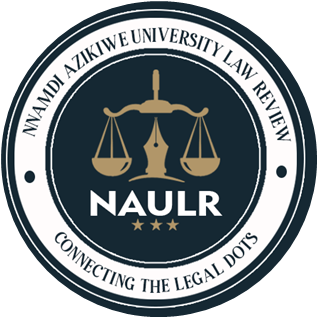BY
UCHECHUKWU ERNEST AMAEFULE & ASOMUGHA UGONNA
1.0 INTRODUCTION
The Senate of the Federal Republic of Nigeria on the 5th of November, 2019 introduced the Anti-Social Media Bill (hereinafter referred to as the ‘bill’)to criminalize the use of the social media in peddling false or malicious information. The original title of the bill is Protection from Falsehood and Manipulations Bill 2019. It was sponsored by Senator Mohammed Sani Musa from northern Nigeria. After the bill passed second reading on the floor of the Nigerian Senate, its details were made public. This was trailed by angry reactions by horde of Nigerians including civil society organizations and human right activists who unanimously opposed the bill. International rights groups such as the Amnesty International and Human Rights Watch[1] condemned the proposed legislation. Among the several reasons for the opposition, a major issue was that it is aimed at gagging freedom of speech which is a universal right in a country of over two hundred million people.[2] Opposition political parties also were critical of the bill and accused the government of attempting to strip bare, Nigerian citizens of their rights to free speech and destroying same social media on whose power and influence the ruling party came to power in 2015.
However, despite the sentiments held by many Nigerians in opposition to the bill, this paper shall examine the bill in relation to it as an avenue to protect the online safety of Nigerians. Arguments for or against shall be made in relation to the bill. This paper shall also examine the key provisions of the bill to see whether or not it has the effect of gagging the fundamental rights of the citizens of Nigeria. In the final analysis, this paper shall compare the provisions and objectives of the bill with that of other jurisdictions to see if the bill in its essence, is in line with the true principles of the fundamental rights of citizens and whether or not in entirety, it is essential for social media to be regulated.
